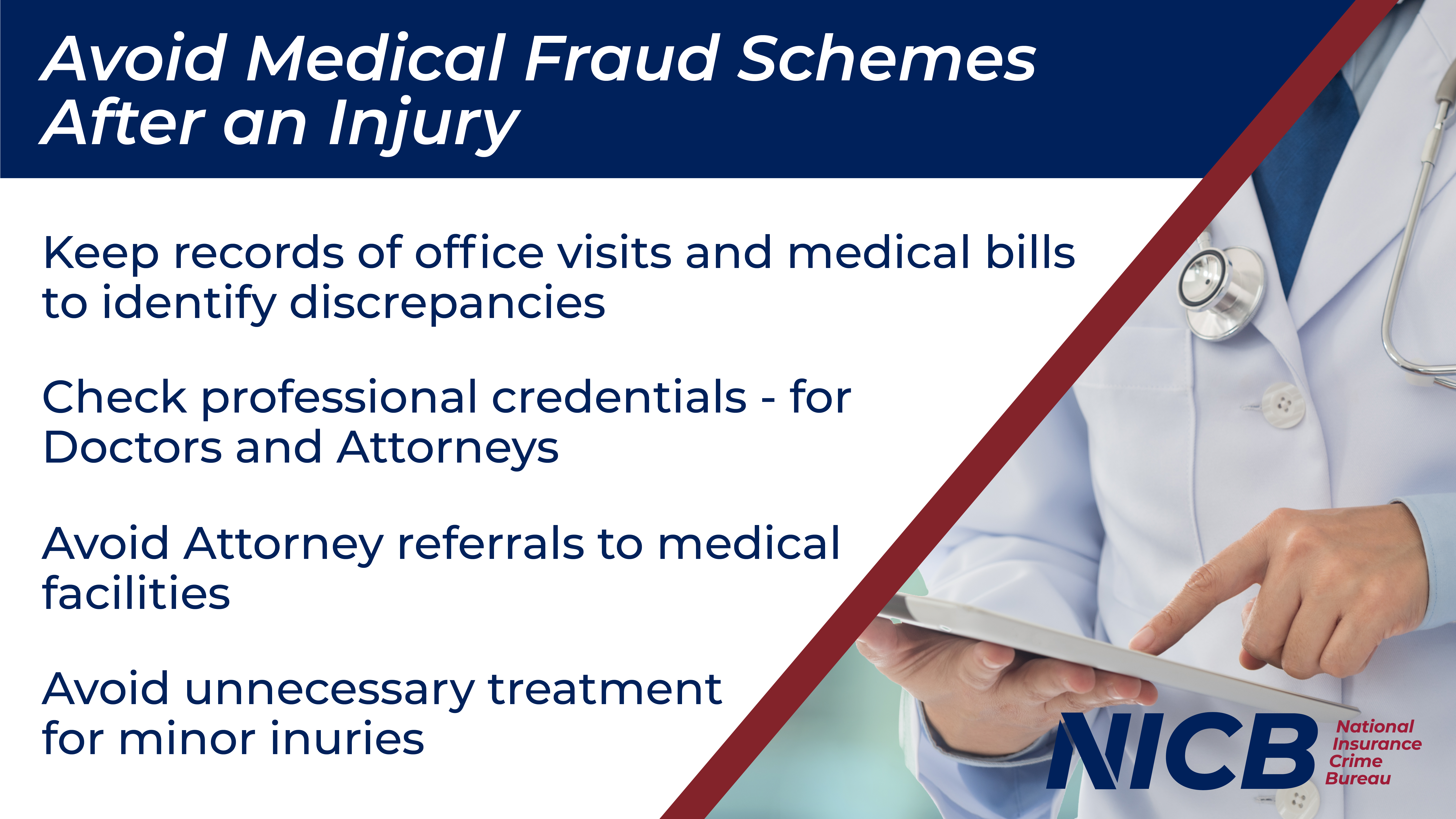Medical Fraud Resources
Resources: Video | Tips | Common Schemes | Graphics | Handouts
Video
Watch out for these scams to avoid becoming a victim of medical fraud:
Tips
Review these tips to avoid becoming a victim of medical fraud:
After an Injury
- Be cautious of individuals that recommend specific Attorneys or Doctors. These "runners" often receive compensation for referrals.
- If an Attorney refers you to a specific Doctor, or vice versa, be wary. This is a common sign of a medical mill operation.
Receiving Treatment
- Before seeking medical treatment or legal counsel, do your research on Doctors and Attorneys.
- Don't be talked into an injury.
- If you believe you are prescribed unnecessary treatment, get a second opinion.
- Maintain records of your office visits and treatments.
- If you receive transportation, document the number of times you are picked up and the number of miles.
Post Treatment
- Provide records to your insurance representative. The agent can compare your records to your medical bill and uncover potential discrepancies.
- Ask for an itemized medical bill from your medical provider. If you are charged for services not rendered, contact your insurance agent.
- Ensure all medical history is accurate, as this can affect insurance in the future.
Common Schemes
Farming out
In this con, a medical provider that does not own an MRI machine sends patients to a facility that does. The former then pays the latter for the imagery, say $250, and then bills the insurance company an inflated fee, say $2,600, under the guise that they own the equipment and performed the MRI.
Three-dimensional padding
3D MRIs can add a few hundred dollars to the final bill. The fraud occurs when a medical provider upcharges for a 3D MRI, but only used traditional, two-dimensional technology.
Services not rendered
A provider bills an insurer for an MRI, but did not provide the service.
Performing MRIs without appropriate medical staff
Some imagery testing may be lawful without a physician present, but not all, especially when contrasting dye is used as some patients can experience life-threatening reactions. Shady providers looking to cut corners have been known to unlawfully conduct MRIs without a doctor present, but bill insurers nonetheless.
Medically unnecessary testing
This occurs when a physician orders an MRI solely or primarily for the financial benefit, rather than the medical necessity. A variation of this is conducting imagery testing on body parts beyond the problem area.
Falsifying equipment records
MRI equipment requires regular maintenance and calibration. Some insurers, such as Medicare, require independent diagnostic testing facilities to be approved to ensure the safety and efficacy of the equipment. To ensure expensive equipment does not go unused, scammers may falsify maintenance records or alter records to make it seem that services performed at an unapproved facility actually took place at a facility that had passed inspection.



